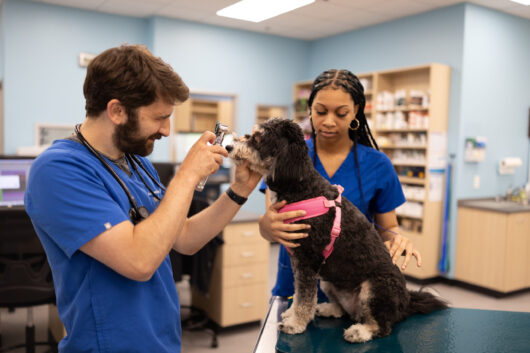
The Mentor Advantage: How Guiding New Veterinarians Enriches Your Career
After graduation, stepping into the clinic they will work as a new, licensed veterinarian for the first time is a defining moment for any new doctor. New grads bring fresh knowledge and immense passion, but also a healthy dose of uncertainty. As a tenured veterinarian, you have the unique opportunity to guide them through this critical phase. While the advantages for the new graduate are clear, the benefits of veterinary mentorship for the mentor are just as profound and often overlooked.
Guiding a new professional is more than just a kind gesture; it’s a powerful investment in yourself, your practice, and the future of our shared community. This post explores the significant rewards you gain from mentoring new veterinarians, offers practical tips for building a strong connection, and outlines effective methods to make the experience fulfilling for everyone.
The Benefits of Mentoring
Taking on a mentorship role requires time and energy, but the return on that investment is immense. It enriches your professional life in ways that extend far beyond the day-to-day routine of appointments and procedures.
Reignite Your Passion and Rediscover Your ‘Why’
Remember the excitement you felt during your first year of practice? Mentoring allows you to see the profession through a new lens. A mentee’s curiosity and enthusiasm can be contagious, reminding you of the core reasons you chose this demanding yet rewarding career. Answering their questions and explaining your thought process helps you reconnect with your own passion for animal welfare and the science of medicine.
Sharpen Your Own Clinical and Communication Skills
One of the best ways to master a subject is to teach it. Explaining complex cases, surgical techniques, or client communication strategies forces you to organize your thoughts and articulate your knowledge with greater clarity. This process reinforces your own expertise and can even reveal new insights into your established methods. You might find yourself re-evaluating old habits and adopting more efficient, evidence-based approaches inspired by your mentee’s recent education.
Build a Stronger, More Cohesive Team
A clinic with a strong culture of veterinary mentorship is a healthier, more collaborative environment. When you invest in a new team member’s growth, you foster a sense of loyalty and mutual respect. This supportive atmosphere improves team morale, reduces turnover, and enhances overall clinic efficiency. A well-mentored new veterinarian quickly becomes a confident and capable colleague, sharing the caseload and contributing positively to the practice.
Become a Leader and Shape the Future
Mentoring is an act of leadership. By sharing your wisdom and experience, you are actively shaping the next generation of veterinarians. You have the chance to instill the values of compassion, ethics, and high-quality care that define our profession. This legacy of guidance is a powerful contribution that extends beyond your individual practice and helps uphold the standards of veterinary medicine for years to come.
Effective Mentoring Tips for Veterinarians
Successful mentorship is built on a foundation of trust, communication, and shared goals. Here are some practical tips to help you build a strong and supportive relationship with your mentee.
Set Clear Expectations from the Start
Begin the relationship with an open conversation. Discuss what the mentee hopes to gain and what you can realistically offer. Establish how often you will meet, the best ways to communicate (e.g., scheduled check-ins, quick questions via text), and the key areas of focus. This clarity prevents misunderstandings and ensures you are both working toward the same objectives.
Foster a Safe and Open Environment
Your mentee needs to feel safe asking questions, no matter how basic they may seem. Create a judgment-free zone where they can admit mistakes and voice uncertainties without fear of criticism. Share stories of your own early career challenges to show that learning is a lifelong process. This vulnerability builds trust and encourages honest communication, which is essential for growth.
Go Beyond Clinical Skills
While technical skills are crucial, a huge part of a veterinarian’s success lies in their “soft skills.” Offer guidance on client communication, managing emotional cases, handling finances, and achieving a healthy work-life balance. These are often the areas where new graduates feel least prepared. Sharing your experience in these domains provides immense value and helps them build a sustainable and fulfilling career.
Celebrate Wins and Provide Constructive Feedback
Acknowledge your mentee’s progress and celebrate their successes, big and small. Positive reinforcement builds confidence and motivation. When offering corrective feedback, be specific, gentle, and constructive. Focus on the behavior or action, not the person, and provide actionable steps for improvement. Frame it as a shared effort to find a better solution.
A Partnership in Growth
Mentoring new veterinarians is one of the most generous and rewarding acts an experienced professional can undertake. It is a two-way street where your guidance helps a new doctor flourish, and their fresh perspective helps you grow. By embracing the role of a mentor, you not only strengthen your own skills and renew your passion but also contribute to a more supportive and resilient veterinary community.
You have a wealth of knowledge to share. By offering it to a new graduate, you create a lasting impact on their career and find a deeper sense of purpose in your own.